MARY GALLATI
A BIBLIOGRAPHY
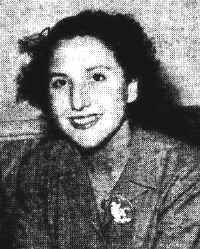
Mary Gallati (1920-1978)
Novels | Short Stories
Poetry | Nonfiction
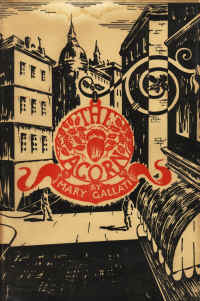
The Acorn
Published by The Fortune Press, 1950
Gallati's brilliant debut novel is made up of a series of vignettes set in a London
restaurant. Her father, the well known restaurateur Mario
Gallati, ran The Caprice in London's Piccadilly at the time this book was written,
although she stated in a newspaper article that The Acorn was not meant to be a
depiction of his famous restaurant, which was frequented by a number of celebrities and
high flying clientele. The Acorn, episodic by nature, nevertheless benefits from
a flowing, unpretentious narrative, giving touching snapshots of incidents among the
management, waiters, cooks and patrons of a busy dining house. It is a delight to read.
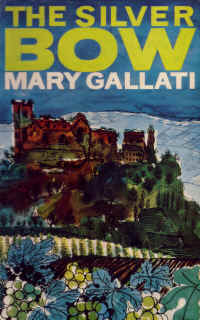
The Silver Bow
Published by Hutchinson, 1962
This outstanding novel is set in the Oltrepo Pavese district of northern Italy where
Gallati's parents grew up. Her grandmother worked as a shoemaker in this region and
Gallati herself was very familiar with the area. In fact, she began writing the novel in
1955, while on holiday there. The Silver Bow spans the years from 1898 to 1950
and tells the story of the aristocratic Allici family. It is in part social history, as
the plot moves through the dark period of Mussolini's reign, but more than anything else
this is an enthralling tale that leaves one wishing Gallati had published more novels.
Press reviews at the time were favourable, with Shelia Saunders of The Liverpool
Daily Post describing it as a novel that "never fails to entertain and is often
moving. This is that rare thing—a book which demands to be read from cover to cover,
and one without pretensions." Robert Pitman wrote in The Sunday Express that
her novel was "enthralling—a sense of history and social change." Her
father, Mario Gallati, at a champagne party to celebrate the publication of The Silver
Bow, proudly referred to his daughter's epic as "a sort of Italian Gone with
the Wind. Someone should make a film of it."
"Pietro the Carver"
The Star, March 16, 1946
"Joe's Silver Wedding Day"
Argosy (British edition), May 1946
"It's a Lovely Day"
The Star, June 22, 1946
This short story was aired on national radio (2BL—2NC) by the Australian Broadcasting
Corporation on May 23, 1950.
"The Odd Mrs. Ponty"
The Star, July 20, 1946
"His Wild Oats"
The Star, August 31, 1946
"Innocent and Guilty"
Argosy (British edition), September 1946
This short story was adapted into a radio play and broadcast by the BBC Light Programme on
December 7, 1946.
"Spit-and-Polish"
The Star, October 5, 1946
"Just in Time"
The Star, October 29, 1946
"Paradise for Pasquale"
The Star, November 30, 1946
"Miss Pretty & the Boss"
The Star, January 14, 1947
"When the Angels Laughed"
Argosy (British edition), February 1947
"Serenade to a Blonde"
The Star, March 25, 1947
"That Little Husband"
The Star, May 9, 1947
"Carla and the Simpleton"
Argosy (British edition), May 1948
Short Story Magazine (Sydney, New South Wales, Australia), No. 83, June 1951
"Peach Melba"
The Star, August 28, 1948
"Miss Auriol and the Cake"
The Star, October 30, 1948
"Triumph of Uncle Dino"
The Star, April 30, 1949
The Bristol Evening Post, June 11, 1949
"Loving Cup for Angel Face"
The Star, June 25, 1949
"The Windfall"
Argosy (British edition), October 1949
"Girl on the Beach"
The Star, November 19, 1949
"Year of the Phylloxera"
Argosy (British edition), February 1950
" 'Fair Dinkum' "
The Star, July 15, 1950
"Reminder of Love"
The Star, September 2, 1950
The Bristol Evening Post, June 23, 1951
"The Pink Dress"
The Daily Mirror (Sydney, New South Wales, Australia), September 26, 1950
The Star, December 8, 1951
"Dollar and Dime"
The Daily Mirror (Sydney, New South Wales, Australia), October 5, 1950
You, April 1951 (this short story is reprinted here under the title "Dead
End Kid")
The text of this story was slightly revised for its appearance in the British magazine You.
The dollar and dime were replaced by a florin and penny!
"Man Proposes"
The Daily Mirror (Sydney, New South Wales, Australia), November 24, 1950
The Star, January 5, 1952
"The Hunter of Good Fortune"
The Daily Mirror (Sydney, New South Wales, Australia), December 23, 1950
"Convict's Escape"
The Star, December 30, 1950
The Bristol Evening Post, July 7, 1951
"The Jilted Lady"
The Star, January 13, 1951
The Bristol Evening Post, July 21, 1951
"The Postman's Knock"
The Star, August 4, 1951
The Bristol Evening Post, September 15, 1951
"All for the Love of Nina"
The Star, October 6, 1951
"Lucky Stars"
The Star, February 2, 1952
"Carlo and the Angel"
The Star, June 21, 1952
"Ghita's Jackpot"
The Star, August 30, 1952
"Diamonds for a Lady"
The Star, July 4, 1953
"The Dreamer"
The Star, September 26, 1953
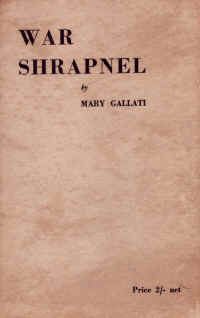
War Shrapnel
Published by Arthur H. Stockwell, 1947
Gallati began writing poetry at the age of 15, when her first poem was published in the
literary review magazine Time and Tide. The only collection of her verse that has
ever been published, War Shrapnel includes poems original to this book alongside
several that had previously appeared in Time and Tide, Answers, Woman
and Beauty, The Sunday Chronicle and World Digest. The poems
assembled in this collection follow the years of the Second World War chronologically and
reflect upon its impact on the lives of people in Great Britain. Gallati's verses are at
times patriotic, philosophical, or playful.
War Shrapnel contains the following poems: "Prolegomenon",
"History", "Garden of Life", "Night Train", "The
Sea", "Somewhere a Someone is", "Lady Time", "The Fine
Soldiers of the British Empire", "Our Bloke!", "Youth!",
"Moods", "London, Heart of Britain", "Good-bye",
"1941", "A Young Man's Fancy", "Omnipotent", "
'Uncivil' Service", "Tojo, Kirokiro and Sigismundo", "Pacifism?",
"The Lion Enslaved", " 'Poor' Jerry", "Finale", "Lily,
the 'At 'Ater", "To Be, Or—", "Mussolini", "Combined
Operations", "A Rose", "The Old Man", "The Mirror of
Life?", "Thought", "Obvious Conclusion?", "Cloud",
"Tenement House", an untitled poem headed "To the mother who has lost her
son", "A Valentine!", "Sandstorm" and "Victory Calls".
The following is a list of poems in periodicals where I have been able to identify the source publication and issue date:
"Moods"
The Sunday Chronicle, February 20, 1944
War Shrapnel, Arthur H. Stockwell, 1947
"Silhouettes"
Answers, No. 2866, January 1945
"The Sea"
Answers, No. 2867, January 1945
War Shrapnel, Arthur H. Stockwell, 1947
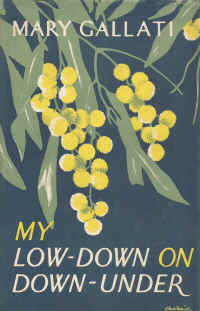
My Low-Down on Down-Under
Published by Hutchinson, 1953
Introduction by Compton Mackenzie
This book is a travelogue and a personal reminiscence by the author of her year-long visit
to Australia and New Zealand. During her time Down Under, Gallati worked on the staff of
the Sydney Daily Mirror, for which publication she wrote historical feature
articles. She travelled extensively, visiting the Great Barrier Reef and a Queensland
cattle station. She even got married! My Low-Down on Down-Under is a marvellous
chronicle of her experiences in the Antipodes and serves as a guidebook for those
considering emigrating there.
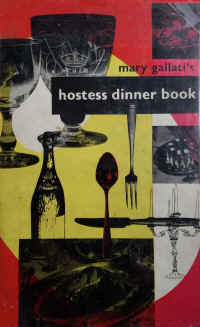
Mary Gallati's Hostess Dinner Book
Published by Souvenir Press, 1953
A volume that contains practical advice on cooking meals for guests throughout the year by
providing 48 different menus and a guide to buying seasonal vegetables. The contents also
include nine methods of making coffee and information on 44 liqueurs!
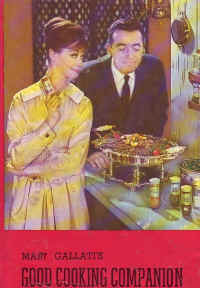
Mary Gallati's Good Cooking Companion
Published by Souvenir Press, 1956
A book of recipes and general guidance on preparing nourishing meals.
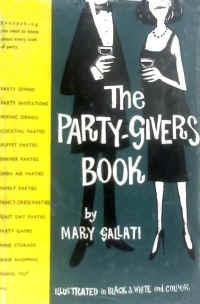
The Party-Giver's Book
Published by Souvenir Press, 1959
This book provides information on how to prepare and host a successful party.
Sources and Acknowledgments:
In the process of compiling this bibliography, as well as referring to my own
collection of literature, a number of online sources were consulted, not the least of
which was Philip Stephensen-Payne's Galactic
Central website, the home of William G. Contento's Fictionmags Index.
My thanks to Jamie Sturgeon for tracing reprinted stories by Gallati in the Bristol
Evening Post.
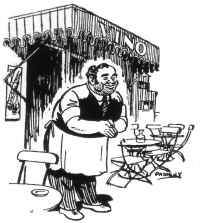
Illustration in The Star for the short story "Pietro the
Carver".
Addenda:
Please note that in the Short Stories
section of this webpage, The Star refers to the London evening newspaper that ran
from 1888 to 1960. I discovered and fell in love with Mary Gallati's writings while
researching the history of fiction in The Star at the British Library Newspaper
Library.
It is important to stress that the checklist of Gallati's short stories on this webpage is
incomplete. According to the blurb for one of her books, she had over 120 of them
published. Many of these are, no doubt, buried in old magazines and newspapers. Moreover,
in addition to her stories, Gallati had numerous articles printed in British magazines
such as Woman and Beauty, The Quiver and Woman's Journal. I
have been unable to track down details on which issues these appeared in.
Gallati was a scriptwriter for the BBC and had three of her plays broadcast on BBC Radio.
The BBC Light Programme aired Gallati's "Innocent and Guilty" on December 7,
1946 as part of their Saturday Playhouse show. It has not been possible to find
out the transmission dates of the other two radio plays she had produced by the BBC. The
only other title among these that I have been able to identify is "Acquitted".
She also worked for a time as a trainee scriptwriter for Ealing Studios; no doubt this
aided Gallati in her ambition to become a playwright.
Information on her other work for television and radio is sketchy. She made a short TV
series about cooking for Associated Rediffusion Ltd., but at the time of writing, no other
details of this are available. Gallati appeared on an ITV cookery programme in 1955
alongside George Alluois, the chef at her father's restaurant The Caprice. Her work as a
freelance broadcaster is said to have encompassed giving talks and conducting interviews
with literary figures that were aired on the wireless. Two of these were with J. B.
Priestley and Charles Morgan. She worked for the Italian section of the BBC, appeared
regularly on the show Woman's Hour and wrote and produced her own radio
programmes on art and literature.
Described once as a "newspaper girl", specific details about Gallati's work as a
journalist have mostly eluded me. She is said to have travelled through Germany in 1948
writing newspaper articles. A piece by Gallati entitled "Wine and the Menu" was
published in The Daily Telegraph at some point in the 1940s or 50s. Another
article, "The Savoir Faire of Dining Out", appeared in the November 13, 1953
issue of the same newspaper.
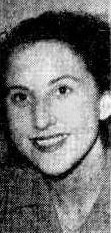
Mary Gallati in Australia, 1950.
Upon her arrival in Sydney, Australia in February 1950, Gallati was accompanied by the young theatre manager John Norton, who had travelled on board the same ship, the SS Moreton Bay. During the sea voyage they collaborated on the manuscript of a playbill which consisted of two one-act plays entitled "Acquitted" (which Gallati had previously written for the BBC) and "Dino and Eve". It was their hope that this work would be produced on the stage or radio in Australia. However, it is unclear whether the project saw fruition or not. As well as gathering material for her book My Low-Down on Down-Under (1953), while in Australia Gallati wrote historical feature articles (unfortunately, I have been unable to trace the titles and publication dates of these pieces) for the Sydney newspaper The Daily Mirror, for which publication she was an employee for several months. Finding work had become a necessity at the start of her visit as she had travelled to Australia on the invitation of a friend, only to find upon her arrival that the friend was very unwell. Organising accomodation for herself at short notice had also become a top priority! While in Australia, she got married. No other details of this are known, but by 1951 she had returned to London and an interview dating from 1955 that was conducted by C. D. Key of The Kensington News and West London Times at her flat in De Vere Gardens, Kensington is quite revealing. In response to a question about her personal life, she replied: "I am single. So far, I have only met Mr. Wrongs, but, if Mr. Right came along, I would settle down." One can only surmise from this that the marriage was dissolved quickly. The article covered quite range of subjects, with the journalist noting that Mary Gallati was "full of life with a very keen sense of humour." Her flat overlooked where her "favourite literary personality" Robert Browning once lived; the flat itself the former home of Henry James. Although she had been a journalist herself and worked as a secretary (in her mid-teens she studied shorthand at Clapham Business College) in addition to her literary career, Gallati averred "I am rather old fashioned", believing that in a marriage, a woman should be a homemaker while the husband goes out to work. "The working couples that I have met never seem to be really happy," she remarked. And what a shame it is that today, in 2025, to agree with such a statement would be committing social suicide! On a happier note, she referred to her book My Low-Down on Down-Under and that she loved travelling, asserting that one gains more knowledge that way than any other. Paintings and sculptures by Jacob Epstein adorning her home were observed by Key, with Gallati mentioning that Epstein was a family friend. She went on to recollect meeting the Milanese portrait sculptor, Enzo Plazzotta, who had been an active member of an anti-fascist partisan movement in Italy during the Second World War, when he was visiting London in 1948. While Gallati sat as a model for him to create a bust out of bronze, Plazzotta commented on her "perfect Etruscan head". To her, it was a strange experience and somewhat embarassing!

In 1962, Gallati wrote the script for the Look at Life episode
"A Clean Sweep". She contributed two more episodes in 1963: "Everything
Stops for Tea" and "Crowning Glory". Look at Life was the title of
a series of short documentaries produced by the Rank Organisation that were shown in
British cinemas during the 1960s.
In the latter part of her life, Gallati was said to be working on a history of the Borgia
family and a television drama entitled "Sword in the Flame". It would appear
that neither of these projects were published or broadcast.
A member of the Society of Authors, Mary Ernestine Gallati, to use her full name, was
brought up in a Roman Catholic family and enjoyed flying aeroplanes, driving her car,
horse riding, playing golf and tennis, swimming, tap-dancing, singing and painting in her
spare time. She was born on March 7, 1920 in the St Pancras area of North London, in a
house where Christina and Dante Rossetti had been born around a century earlier. The
youngest of three children, Gallati was the daughter of Josephine (née Frasca) and Mario
Gallati, the latter a famous maître d' of The Ivy restaurant in Covent Garden, who in
1947 founded The Caprice restaurant in Piccadilly, a stone's throw from The Ritz hotel.
With the initial financial backing of Ivor Novello and Noel Coward, Mario Gallati made a
success of The Caprice and it became a favourite haunt of the rich and famous. In 1967 he
retired as restaurant manager due to poor health. He passed away in January 1975, by
coincidence only a few hours after The Caprice closed down. I have read his autobiography Mario
of the Caprice (1960), and a good deal by his talented daughter, who helped him to
write the book. It is clear that Mary was devoted to her father. For years she wrote
nativity verses for his Christmas cards. He in turn was said to be filled with pride every
time one of her short stories was published. Mary Gallati passed away in Westminster,
London, aged 58, on September 21, 1978. A Requiem Mass was held a week later at Brompton
Oratory, Kensington before she was interred at Gunnersbury Cemetery in West London.
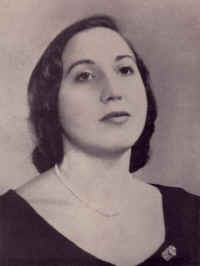
Email: marks3789@gmail.com
Copyright © 2025 Richard Simms